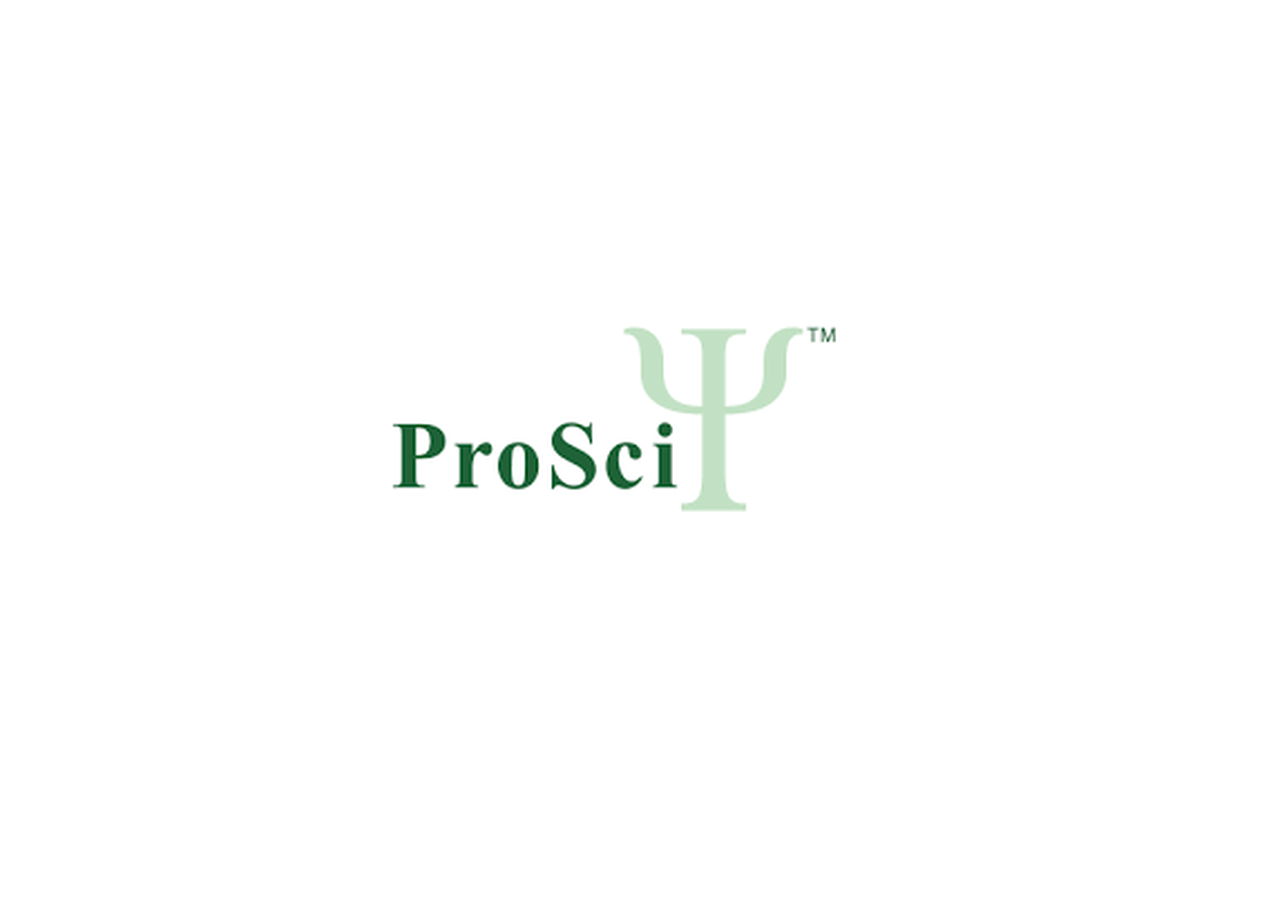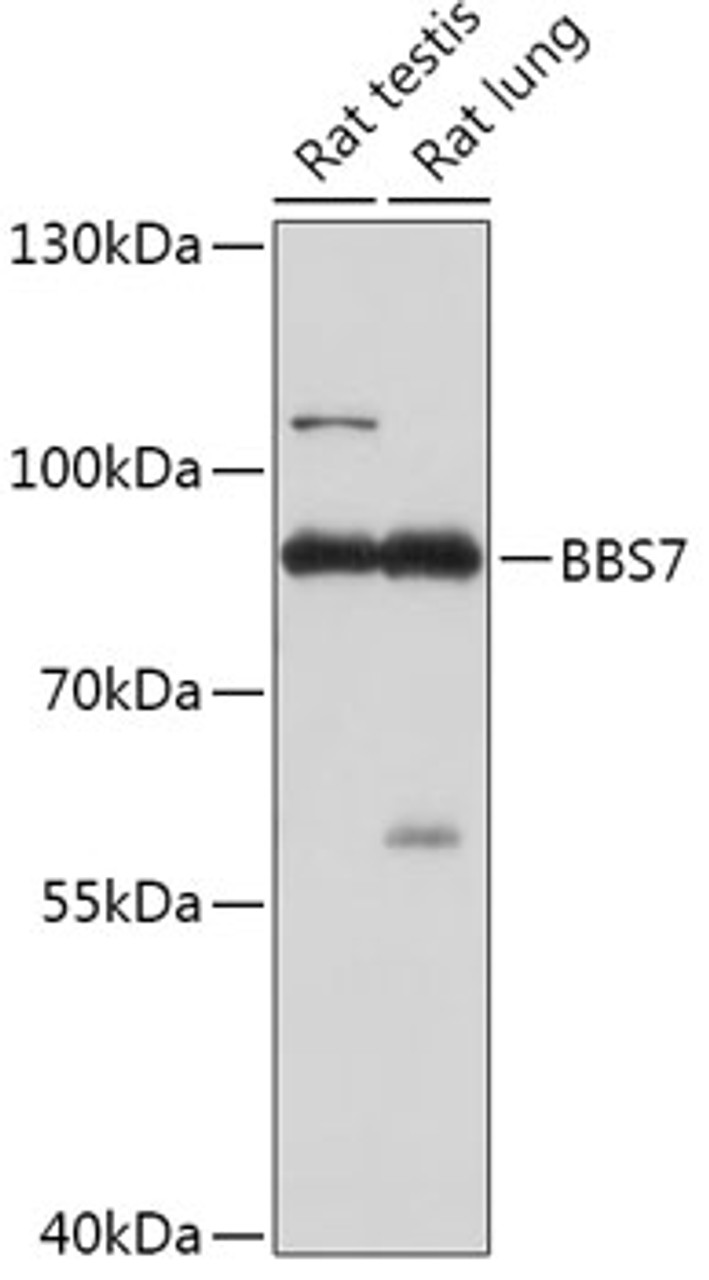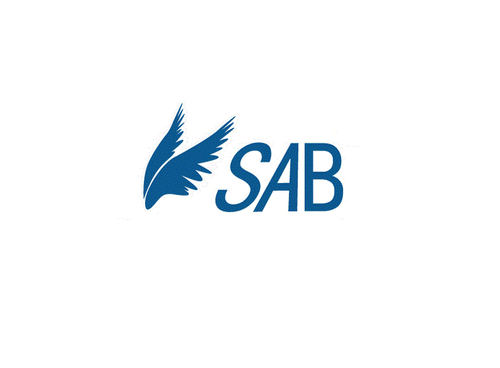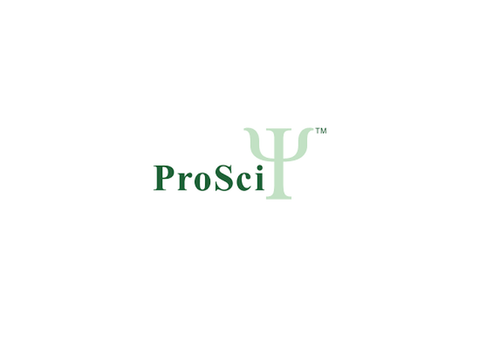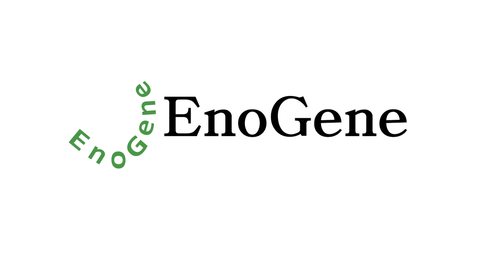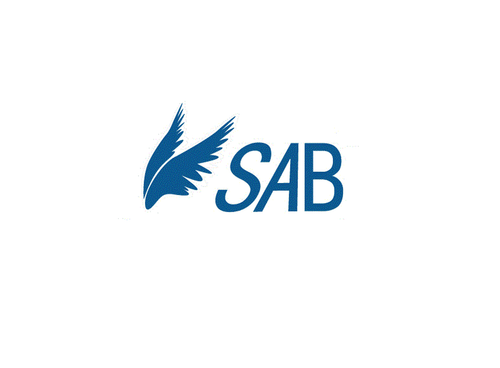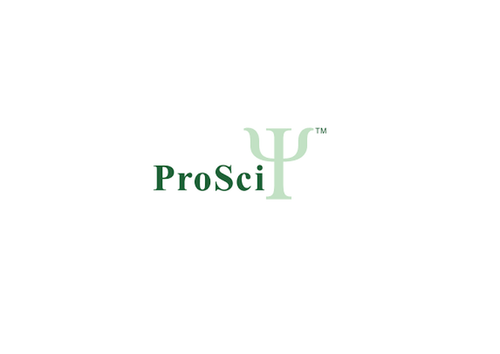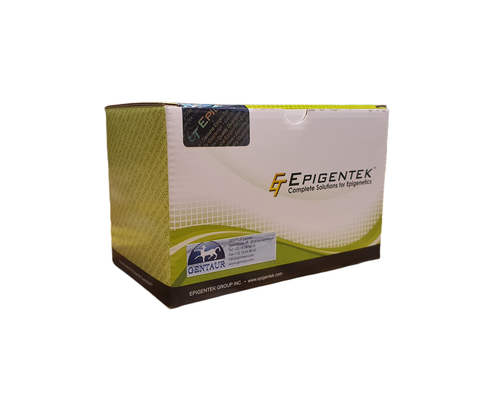Product Description
BBS7 Antibody | 18-068 | ProSci
Host: Rabbit
Reactivity: Human, Mouse, Rat
Homology: N/A
Immunogen: Recombinant fusion protein containing a sequence corresponding to amino acids 1-270 of human BBS7 (NP_060660.2) .
Research Area: Cancer, Cell Cycle, Neuroscience
Tested Application: WB, IHC, IF
Application: WB: 1:500 - 1:2000
IHC: 1:50 - 1:100
IF: 1:50 - 1:200
Specificiy: N/A
Positive Control 1: Rat testis
Positive Control 2: Rat lung
Positive Control 3: N/A
Positive Control 4: N/A
Positive Control 5: N/A
Positive Control 6: N/A
Molecular Weight: Observed: 80kDa
Validation: N/A
Isoform: N/A
Purification: Affinity purification
Clonality: Polyclonal
Clone: N/A
Isotype: IgG
Conjugate: Unconjugated
Physical State: Liquid
Buffer: PBS with 0.02% sodium azide, 50% glycerol, pH7.3.
Concentration: N/A
Storage Condition: Store at -20˚C. Avoid freeze / thaw cycles.
Alternate Name: BBS7, Bardet-Biedl syndrome 7, BBS2L1, FLJ10715, BBS2-like 1, Bardet-Biedl syndrome 7 protein
User Note: Optimal dilutions for each application to be determined by the researcher.
BACKGROUND: This gene encodes one of eight proteins that form the BBSome complex containing BBS1, BBS2, BBS4, BBS5, BBS7, BBS8, BBS9 and BBIP10. The BBSome complex is believed to recruit Rab8 (GTP) to the primary cilium and promote ciliogenesis. The BBSome complex assembly is mediated by a complex composed of three chaperonin-like BBS proteins (BBS6, BBS10, and BBS12) and CCT/TRiC family chaperonins. Mutations in this gene are implicated in Bardet-Biedl syndrome, a genetic disorder whose symptoms include obesity, retinal degeneration, polydactyly and nephropathy; however, mutations in this gene and the BBS8 gene are thought to play a minor role and mutations in chaperonin-like BBS genes are found to be a major contributor to disease development in a multiethnic Bardet-Biedl syndrome patient population. Two transcript variants encoding distinct isoforms have been identified for this gene.[provided by RefSeq, Oct 2014]
 Euro
Euro
 USD
USD
 British Pound
British Pound
 NULL
NULL

